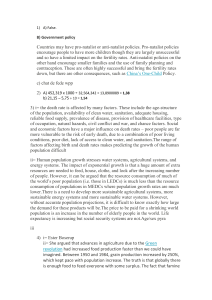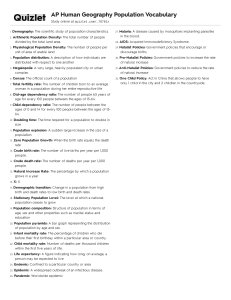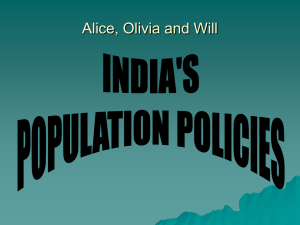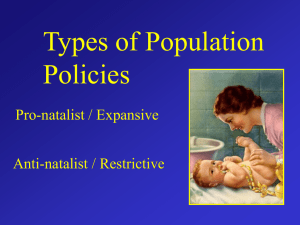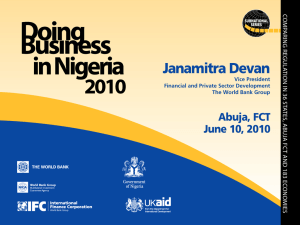Nigeria (PPT by Thomas and Magnus) - geo
advertisement
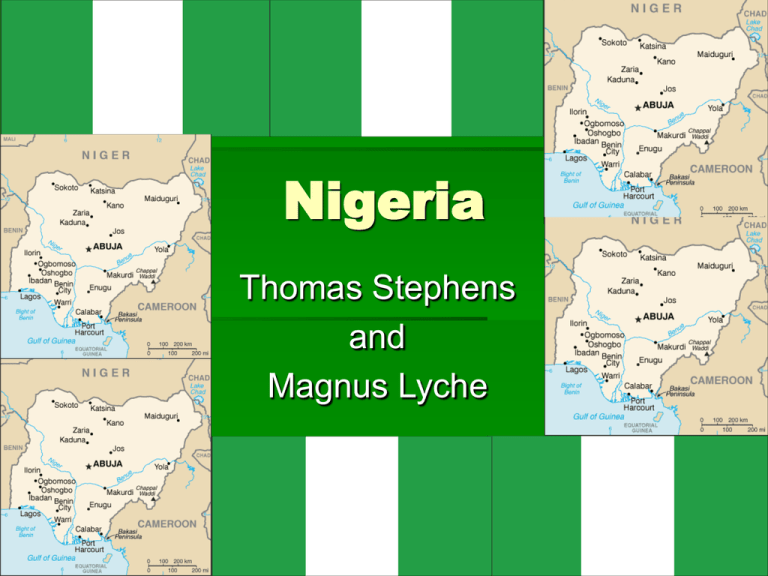
Nigeria Thomas Stephens and Magnus Lyche Which best defines nigeria? Pro-natalist Or anti-natalist First…. For those who don’t know the definitions of anti-natalist and pro-natalist Pro natalist the policy or practice of encouraging the bearing of children, especially government support of a higher birth rate Anti-natalist The policy or practice of discouraging the bearing of children by which governments teach the population to use contraceptives So which is correct… Yes that’s right Nigeria is ANTI-NATALIST! it is neither anti-natalist nor pro-natalist, but if anything the country should be antil natalist. The National policy on population in Nigeria identified several objectives including Promoting an awareness of population problems and the effects of rapid population growth. Providing information on the benefits of small family size Making family planning services easily accessible to all couples at an affordable cost. Specific objectives of the policy Reducing the proportion of women who marry before the age of 18 by 80% by the year 2000 Reducing the number of children a women bears over her lifetime from the average of more than sic children to an average of four. Reducing the percentage of women having more than four children by 80% by the year 2000 Objectives Continued… Reducing the rate of population growth from 3% per year to 2% by 2000 Extending family planning coverage to 80% of women of child bearing age by 2000 Reducing infant mortality rate from the 1975 level of 111 per 1000 to 30 per 1000 live births by 2000 Providing 75% of rural communities with basic social amenities by 2000 to stimulate and sustain self-reliant development. The main reasons for this The growing population means that there is a higher chance of famine because not enough food is produced. Not enough places in schools to give all children some form of an education. Not enough money to be split between people in order for them to survive in life on their own without aid from others. Previous slide continued People are left without homes if to many people are living in an area or is due to not being able to afford nor have the ability to make shelter. Medicine is starting to improve in the country, which means more babies are surviving and get through childhood. Facts about Nigeria to get a good understanding of why they want less babies Total population – 149 229 090 Median age (due to amount of babies being given birth to) - 19.1 Growth of population(%) – 1.999% Birth rate – 36.65 births per 1000 Death rate – 16.56 deaths per 1000 Problems in Nigeria Infant mortality – 94.25 deaths per 1000 births Life expectancy 46.16 4.82 children born per each women over 18 Final conclusion From what we have seen Nigeria still has a long way to go before they can lower the amount of child births for economic and medicinal reasons. After the economy and medical facilities have been increased or stabilized then we may see a development in the population structure within the country END OF PRESENTATION!
